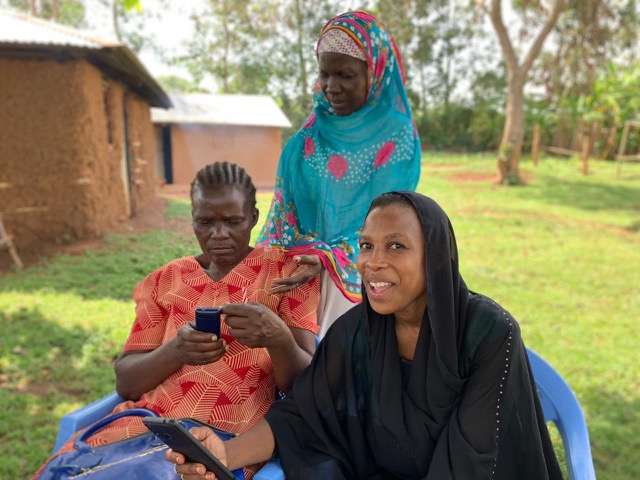Lennard Zwart was hospitalised for two months to combat a nasty corona infection. Once back on his feet, the microfinance startup he had invested in had “a shocking” surprise: It had used his investment for a completely different business idea.

Stepping into Sevi was going to become Zwart’s first move as an impact investor. With a background in banking and IT, he saw a big opportunity for a new microcredit service in Kenya.
“My business partner and I had already earned enough money. We want to do something for the rest of the world,” said the Dutchman on the phone from Dubai (“I’m here to catch some sun – it’s been a rough year”).
Zwart is the owner and portfolio manager of Amsterdam-based family office Res Privata. His goal is to invest 10% of the firm’s €40mn venture capital in impact projects. Early in 2020, he was looking for a microfinance venture which was scalable and financially feasible. “Sevi’s business model could help a lot of people thanks to a new cost structure.”
High interest rates
A problem with microfinance credits is that interest rates are high. A Kenyan example is fintech company Tala, who charges customers up to 15% interest per month.
Almost 140 million borrowers make use of microfinance institutions (MFIs), according to the latest Microfinance Barometer (2019).
Microcredits were launched as a means to take business owners and consumers out of poverty. High interest rates and fees tend to do the opposite. That was the problem Sevi wanted to solve when setting up shop in 2018.
No payments
With Sevi’s online platform, all the paperwork for business owners and loan groups would be scrapped; the process would get cheaper and more efficient.
Early in 2020, Zwart had just agreed to make a first investment. Then Covid struck and the Kenyan world of microfinance went silent.
“Businesses who use microcredit, such as kiosks and shops, were hit very hard,” said Walter aan de Wiel, co-founder of Sevi. “Salaries in Kenya didn’t get paid, people had no money and the microcredits couldn’t be refunded.”
Off the grid
Kenyan banks and two Dutch investment funds who had shown an interest in the startup pulled out. Left was Lennard Zwart. “For some reason he believed in us,” Aan de Wiel said.
Meanwhile, the investor had been hit by the virus. Zwart didn’t have the energy to sign the investment agreement with Sevi before being admitted to hospital in Germany. He confirmed the €30,000 investment by text message and transferred the money the same day.
“Before the pandemic, we had talked about an investment of €200,000. We anticipated that things would get back to normal after the summer in 2020,” said Aan de Wiel looking back.
During his lengthy recovery, Zwart and Aan de Wiel had only sporadic contact via text message. By the end of 2020, it was time for the first proper phone call. “The first ten minutes were a shock. I realised that they had moved from microfinance to trade credits,” Zwart recounts.
“I felt like a proud parent”
Being true to its startup nature, Sevi hadn’t been twiddling their thumbs during the pandemic. Instead, they had gone on route with Kenyan banks to discover which services were still possible and needed in the area.
Aan de Wiel: “We almost had to start from scratch with a new business case. We had a very short runway and the €30,000 injection was crucial to pull through.”
Today Sevi offers a payment platform for webshops and wholesalers in Kenya and Uganda. They recently won a GDC (Global Distributors Collective) innovation challenge and the platform is piloted by 50 groups.
At Res Privata, Zwart is used to being closely involved in all investments. “During that first talk after my time in the hospital, I quickly realised that the entire microcredit business had imploded. Still, they (Sevi, ed) had made it through without me. I felt like a proud parent.”
A new fund
Zwart’s initial investment will be converted into shares in Sevi. It is still unclear when this will happen.
Res Privata is also considering a loan to Sevi to set up a €70,000 credit fund.
Sevi co-founder Walter aan de Wiel compares the fund to what the fast-growing Swedish fintech Klarna does when offering online customers to pay in installments.
Aan de Wiel: “Our fund will enable the working capital needed to prefinance those B2B orders in Kenya. With an automated process, our aim is to bring interest rates down for small businesses.”






